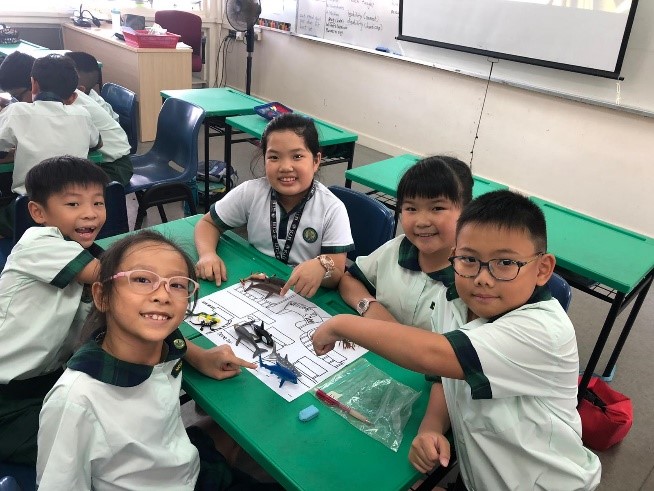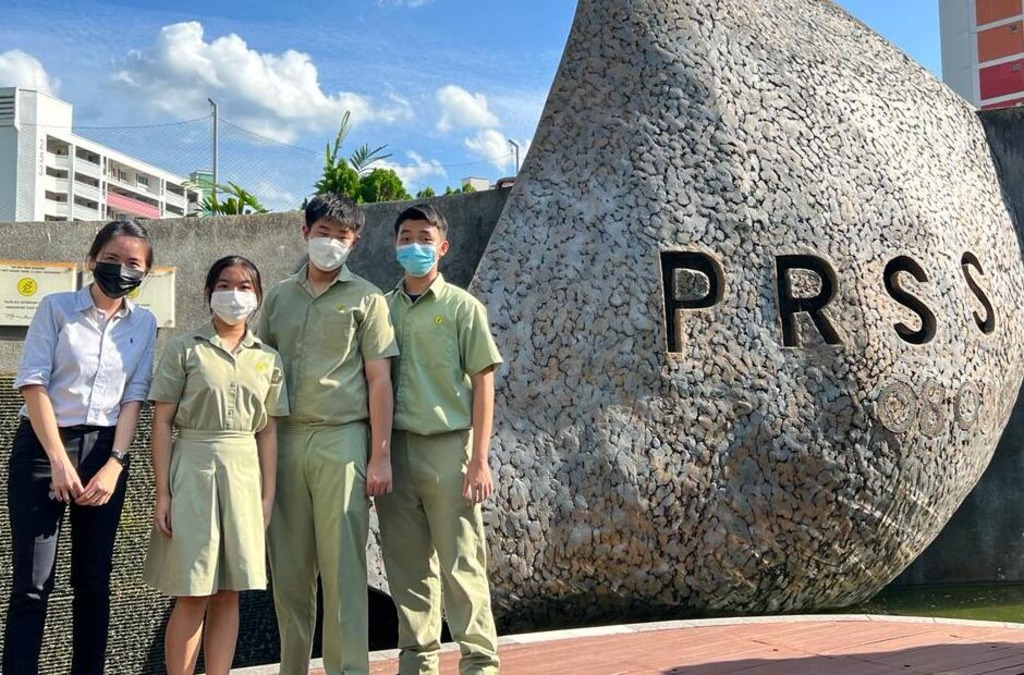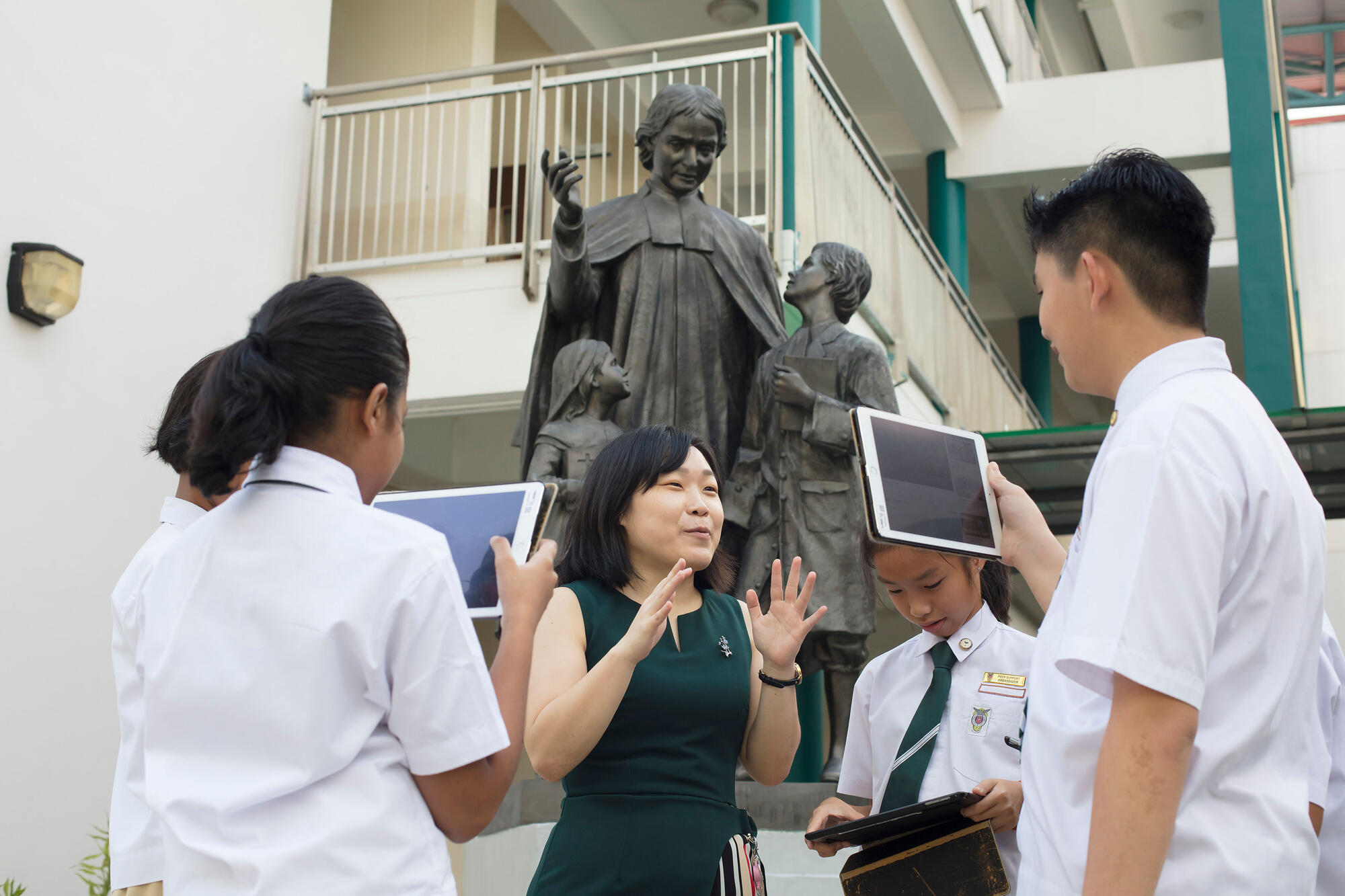Who
Primary 3 (P3) students
When
2020
Why
From 2018 to 2019, the school has removed Semestral examinations for Primary 1 and 2 students progressively. In 2020, the school did away with mid-year examinations (MYE) for the P3 level. This allows the students to slowly get used to the assessment process in middle primary through Weighted Assessments.
What
Tanjong Katong Primary School (TKPS) has a “Diversity of plants mobile trail” Science programme. Students explore the various types of plants in the school’s garden using iPads by following a garden trail to learn about flowering and non-flowering plants before taking part in a game. This brings to life what they learn in their Science textbooks, which is a more authentic, fun and engaged way of learning. After that, they are asked to do journaling to reflect on what they have learnt.
The school also encourages the students to learn Science through play. As part of the lesson on the topic of ‘Animals’, students are given models of animals which they play with and then are asked to study the different characteristics of the animals. Next, they will discuss in groups ways of grouping the animals in zoo enclosures, by recalling their experience of having visited a zoo in the past.
Due to the pandemic situation and with Home-based Learning (HBL), the students were unable to do the school garden’s mobile trail but TKPS teachers quickly adapted Science inquiry lessons online. Despite not being able to show their students edible fungi, fern fronds and other flora up close, teachers took to conducting live lessons on Google Meet to show these specimens to their students.


Using Google Meet via SLS, the students get to see the specimens of the fungi and the fern fronds (or spore bags) through one teacher’s live lesson.
How
When Tanjong Katong Primary School removed Semestral examinations for P1 and P2 in 2019, the school deepened the assessment structure to include evidences of learning for these students.
Vice-Principal Mrs Tan Wai Ling explains. “Tasks are spread out across the term to allow for deeper learning and provide sufficient time for students to learn before they are assessed.
“We use a rubrics system and performance-based tasks to assess students’ qualities or skills, instead of through the usual pen-and-paper test – rubrics provide qualitative descriptions of different success levels and make feedback timely. It also encourages critical thinking and facilitates communication to the students about their performance.
“Thus, we can then align this with our teaching between the learning objectives and the students’ achievement – so we can better understand the performance level of our students.”
Using ICT tools such as Padlet, Kahoot, Nearpod, Padlet and Exit Ticket, TKPS teachers are also able to finetune their evaluation of their students’ learning and increase their students’ engagement.
Tips for other schools
Vice-Principal Tan says, “Leverage on existing structures, processes and programmes. Don’t reinvent the wheel. Go for depth, not breadth.”
Prior planning and getting all the teachers on board are very important, she says. The teachers used the Subject-based Level Meeting (SBLM) platform to discuss how the current programmes, lessons and teaching resources can be better refined so that the freed up space can be utilised well.
She ends with a final suggestion: “Do make use of the teachers’ feedback from the After Action Review (AAR) of each Weighted Assessment to continually fine-tune the curriculum.”






